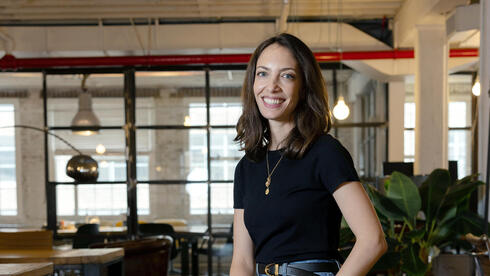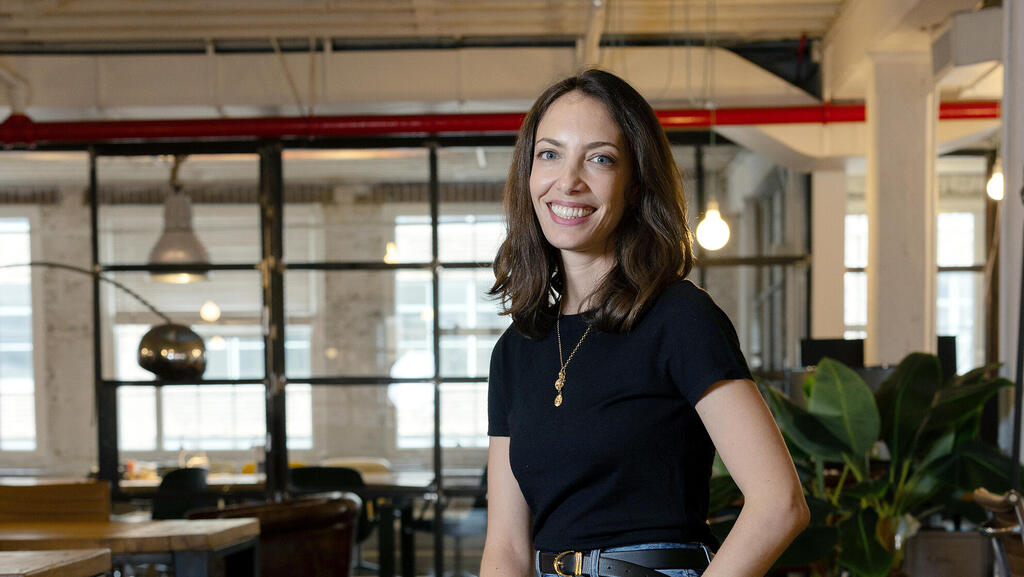
The Israeli startup aiming to eliminate overdrafts once and for all
RiseUp cofounder Tamara Harel-Cohen sought to help families deal with budget issues, but had difficulty convincing Israelis to share financial data. The cost of living, the pandemic and the war did the job, and now she hopes that doing good will also pay off in the company's bottom line
Unlike the familiar story about the guys who met in an elite unit in the army, came up with an idea and started running with it, the founders of the Israeli startup RiseUp - Tamara Harel-Cohen, Iftach Bar and Yuval Samet - met by chance. The three, who came from different backgrounds, found a common language and united around the desire to have a positive impact on society. How exactly, they still didn't know. "We were looking for a problem that could be solved, we thought about it a lot," says Harel-Cohen. "One time we were in a meeting at the welfare ministry. Someone there talked about how they are not able to change the situation regarding families' overdrafts. We decided to investigate the issue, and after diving into it we realized that the key is in the daily management and the flow."
From this understanding grew RiseUp, a platform for planning expenses, which accesses financial information and creates insights based on artificial intelligence. RiseUp’s software connects to the bank accounts and credit cards, extracts the information, processes the expenditure and income patterns, and produces a monthly financial statement. Already at the beginning of the month RiseUp’s artificial intelligence predicts how it is expected to end, how much money is expected to go out and what can be done to improve the bottom line.
Harel-Cohen calls RiseUp an impact company, which from the beginning defined for itself a list of values and social goals, based on which the company's decisions are made. One of them concerns women's employment. The company employs about 100 workers, 50% of whom are women. In addition, 50% of the management are women, and 35% of the development positions are filled by women. "I see what enormous value there is in gender equality around the table. The discussion is deeper, the decisions are better," she says. "I wish we would see a more equal composition around the decision-making tables."
She was born and raised in London, and at the age of 18 she moved to New York and completed her bachelor's degree at Harvard University. After that she worked in a company that produced music videos and commercials. Her father is the tycoon Sir Ronald Cohen, and her mother is the producer Sharon Harel, who produced, among others, "The Band" and "Dizengoff 99". "Hebrew was not spoken at home, and although we visited Israel a lot, I never thought that this was the place where I would build a career," she says. In 2015, she came for a short visit to Israel, which ended with her making aliyah (immigrating). "I studied Hebrew, I did the whole process. Then, around the same time, I found both my work partners and my life partner.
"I always thought I would start something, but I didn't know much about technology or startups, and this way of thinking of how to look at a problem as an opportunity and solve it. When I arrived in Israel, it was the first time I met entrepreneurs, and very quickly I entered this amazing community. I discovered that there are business entrepreneurs and there are social entrepreneurs, and there was no connection between them. That's why the social entrepreneurs did things on a small scale, because they were not technological and had difficulty raising money. I knew I wanted to establish something with meaning and this is where I entered, to connect the business and social entrepreneurs."
RiseUp has so far had three fundraising rounds, in which it raised about $48 million. According to Harel-Cohen, the company is preparing for another funding round. Currently, the company still does not enjoy a positive flow, but it reasons this with the goals it has set for itself. "Even though we have a social goal, we also want to be the most aggressive and commercial. We want to reach millions of customers and help millions of people, so now we are entering more markets - and this is an expense that we cannot finance through the activity."
Which markets will you enter?
"Our expansion is first of all to Britain, where we are at a slightly more advanced stage, and to Spain. From there we will expand to the rest of Europe. Because of the open banking in Europe, it is very easy to move from market to market there."
In Israel you landed on relatively virgin territory, in Europe, on the other hand, the market is crowded. What will be your advantage there?
"Most of the existing products appeal to people who already manage a budget or flow and already live in this world. These are very specific applications, which do one financial thing successfully. We appeal to a different audience, people who want to save money to go on vacation or save for children, and don't know how to do it. These are people who, until today, have not had conversations about money. We talk with them about everyday issues, and slowly deepen and help them understand that the financial discourse should not be stressful, and that you don't need a degree in mathematics to understand how to conduct yourself financially."
At the beginning of its journey, RiseUp invested many resources in the education of the market in Israel. The company was established in 2017, before the open banking legislation was approved, which allows to share financial information with a third party. Thus, a significant part of the company's efforts was devoted to convincing people to connect with them and give their password to the bank. The fastest catalyst for the growth of the company was life itself: the pandemic crisis, followed by the spike in the cost of living and finally the war in Gaza. The last two resulted in a significant increase in the number of the company's customers, who ran into difficulties. Harel-Cohen does not specify the number, but states that there are several tens of thousands of paying customers. According to her, "We are now growing between 10% and 15% every month, at the fastest pace ever. More than 20% of those who join come through existing customers."
What happened to Israeli consumers this year?
"The basic basket of expenses for a family has become more expensive this year by 6.5%. We recognize that the uncertainty creates fear among customers to lock up their money for extended periods of time, so there is an increase in more liquid solutions (such as short-term deposits)."
How does the war affect that?
"We're only starting to see its economic impact now. The next few months are critical. What we're seeing in our community is that people want to be in control. They want to have a safety cushion. We're not seeing a decrease in transfers to savings. I mean, people are still saving and it's something that has come up in the community a lot. The need for liquid savings for a rainy day."















